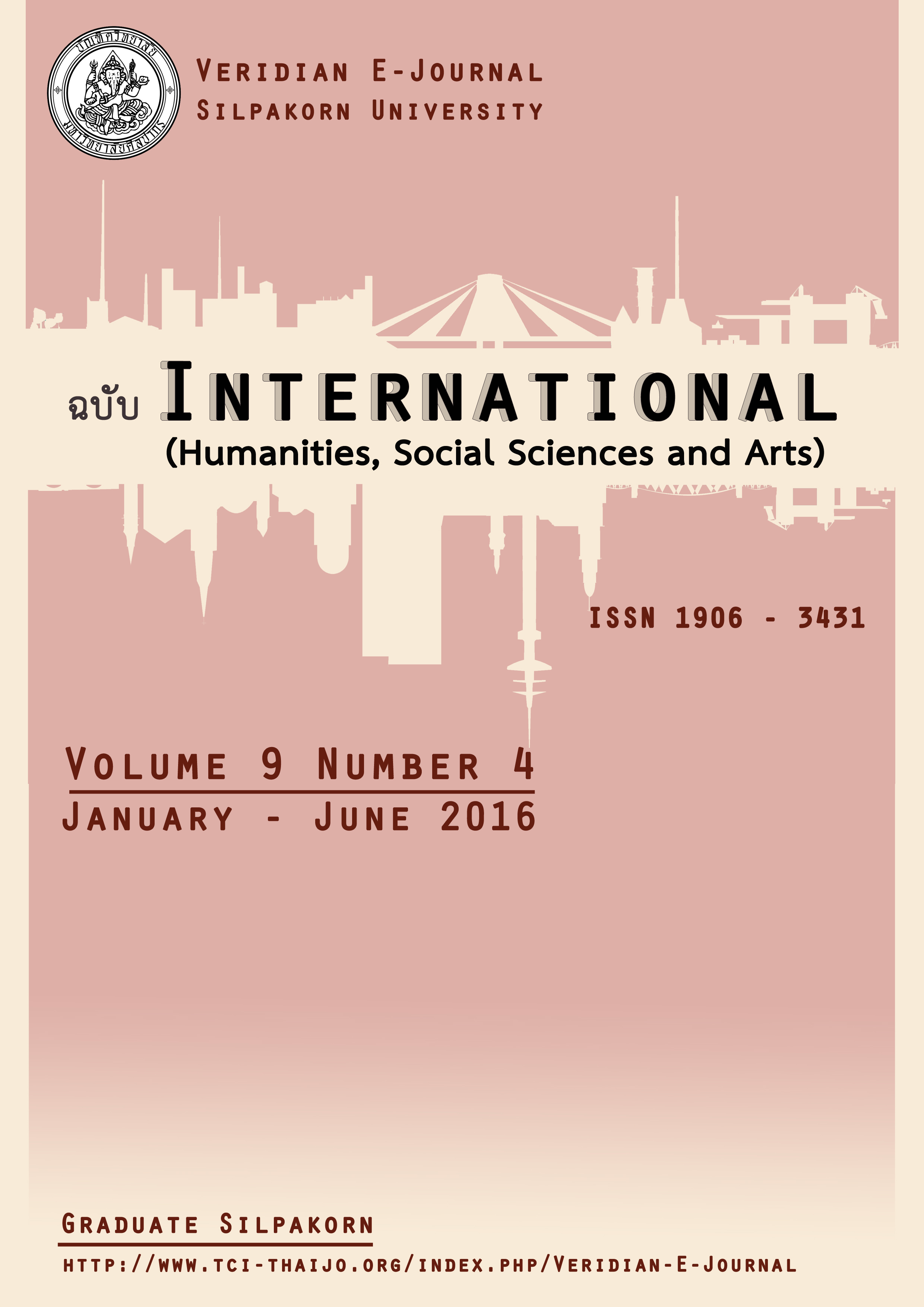The micro-pedagogical contexts in English conversation classes: A comparative study of Thai learners’ interactions with Thai and non-Thai teachers
Main Article Content
บทคัดย่อ
The study aims at investigating Thai learners’ interactions with Thai and non-Thai teachers in English conversation classes, and discovering the kinds of micro-pedagogical contexts constructed in these classes. Participants were 19 learners in the 3rdyear vocational certificate English program who were enrolled in the English for Business Communication course, taught by a Thai teacher, and English Conversation II, taught by a British teacher. The classroom interactions videotaped from both classes were transcribed following the transcription convention adopted by Seedhouse (2004) and Schegloff (2007). The findings revealed that the micro-pedagogical contexts constructed in the classes with Thai and non-Thai teachers included: procedural, form-and-accuracy, and meaning-and-fluency contexts. Most of the class time was spent on meaning-and-fluency contexts. The Thai teacher mainly talked in Thai and spent a significant amount of time on explaining task procedures before doing class activities. Feedback was mainly given on word choice. The non-Thai teacher, on the other hand, was brief about the procedures but more elaborate on examples of anticipated interactions, repaired not only word choice but pronunciation, and consistently gave positive feedback to learners’ contributions. Both teachers apparently spent most of the class time in the meaning-and-fluency context even though the proportion was higher in the class with the non-Thai teacher. The latter not only engaged the learners in class interactions by asking them questions, but by doing exercises and playing games. It was additionally found that the turns constructed by the learners in every context were mostly in the form of either single words or simple sentences. Therefore, to enhance the learners’ interactional contributions, more challenging questions should be asked which require the learners to supply more complex responses. The findings of the study carry important implications for the employment of Thai and non-Thai teachers in teaching English conversation courses and for the development of pedagogical intervention plans to enhance the efficacy of the teaching methods adopted by both groups of teachers to improve English language learners’ oral communication skills.

